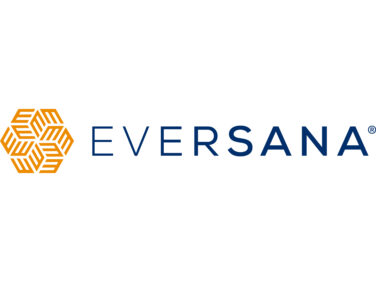As the industry navigates COVID-19, one thing has become clear—life sciences companies with access to quality customer reference data are better positioned to make the fast shift to digital. Most field reps (88%) are now using digital channels such as email and video calls to connect with healthcare providers, highlighting the growing digital maturity of life sciences companies.1
Accurate data is key to accelerating digital transformation and commercial success during COVID and beyond. Recent findings from the Veeva 2020 North American and European Data Surveys show that customer data is a strategic asset that is essential for streamlining commercial operations, increasing field force effectiveness, and fueling actionable insights for better business decisions.
Quality Data Improves Field Productivity and Commercial Efficiency
The vast majority (97%) of North American companies view customer reference data as important for field force effectiveness and strategic business planning. In Europe, 88% of companies consider it critical to launching new products and sales models.
While the importance of quality customer data is well-understood, poor-quality data continues to be a global industry challenge. Companies that rely on antiquated solutions from legacy data providers are particularly troubled by data that does not meet basic quality standards.
Dissatisfaction with legacy data providers is prevalent across regions. In fact, many more European companies express frustration with their primary data providers than U.S.-based companies.
Sales teams often have incorrect phone numbers and affiliation data or outdated information about a physician’s specialty and license status. These inaccuracies negatively affect their field user experience, productivity, and relationships with HCPs.
The margin of error is even lower for digital—life sciences companies get very few opportunities to engage with HCPs. If they unknowingly lead with inaccurate data, HCPs immediately lose trust in the rep’s ability to know who they are and how to engage with them, which causes reps to lose confidence in their data.
For experienced field reps, up-to-date data is the minimum criteria for driving successful HCP interactions, regardless of the engagement approach used—digital, hybrid, or face-to-face. North American and European reps share many of the same quality concerns, including aging and inaccurate data. North America’s life sciences commercial landscape is even more complex and dynamic than Europe’s, creating significant challenges for reps to get reliable insight into hierarchies and affiliation data.
More than 80% of North American field reps have limited visibility into relationships between HCPs and healthcare organizations (HCOs). Without a clear understanding of HCP-to-HCO connections, sales teams cannot target the right contacts, eliminate territory coverage gaps, or build effective account-based selling plans.
Poor-quality data noticeably impacts how quickly and effectively life sciences companies reach the right doctors and patients with life-saving medicines. Streamlining this process is one of the driving forces for companies to implement quality improvement initiatives over the next year.
Industry Sees Significant Value in Quality Improvement Initiatives
HCP data is continuously changing. Now that life sciences companies understand the value of maintaining accurate data, they are going beyond reactive corrections to implement strategic quality improvement initiatives. They realize that commercial success and field force effectiveness depends on data that is proactively updated and maintained.
Most companies already have quality improvement initiatives underway or planned. These initiatives include investing in new sources of customer reference data, investing in data stewardship services, switching to a new system to house and maintain data, and switching to a new data provider.
The primary reason why companies plan to switch to a new data provider is because of their legacy data provider’s slow responsiveness to data change requests (DCRs). Companies expect faster DCR resolution times, so field reps have access to accurate data in near real-time, enabling them to engage the right HCPs at the right time.
Companies want reps to react with speed in the field while maximizing their investment in reps. So, it is paramount to empower them with accurate data updates while they are standing in a hospital and can still effectively execute on a call.
DCRs are resolved in four to five business days on average across North America and Europe. Companies expect data updates to take effect within two days. The difference between expectation and reality explains why companies plan to invest in more data stewardship services as part of their quality improvement initiatives over the next year.
North American companies primarily rely on internal data stewardship teams to resolve DCRs. Others outsource to their data providers or third-party data stewardship services. Companies should objectively evaluate the level of responsiveness and data quality they receive from data stewards, regardless of whether they are on an internal team or with an external vendor. Fast data updates are crucial for companies and their field reps to operate at the speed of business.
Integrated Data Fuels Accurate Insights and AI Innovation
Companies understand the criticality of globally integrated data to gain actionable insights and 360-degree customer views. This deep visibility enables teams to tailor the customer experience, so the right doctor receives the right message through preferred channels.
By centralizing various data sources, companies create a single source of truth that is essential for artificial intelligence (AI) initiatives to thrive. Many organizations are analyzing rep behavior and customer preferences to suggest next-best actions that are most likely to deliver positive results. Other companies are taking it a step further to recommend channels, content, and messaging for impactful HCP interactions.
AI innovation and accurate insights are powered by customer reference data that is accurate, complete, and proactively updated. Quality data assures that the reports companies use for managing their business are accurate. When they can trust the data, they can trust their analytics for superior business decision-making.
A Strong Data Foundation is the First Step Towards Data Excellence
IDC Health Insights predicts that by 2022, 30% of life sciences organizations will achieve data excellence, which is defined as “the concept of effectively using the right data at the right time.” This vision is entirely attainable as companies refine their customer reference data to the point where reps can confidently make timely decisions in the field and companies can trust their reports. This is the path to success.
Data excellence rests on a strong foundation of reliable customer data, a single source of truth, and ongoing data stewardship services. With the right foundation in place, companies can digitally engage the right HCPs, devise effective go-to-market strategies, and achieve greater commercial success amidst COVID-19 and beyond. Read the full Veeva 2020 North American and European Data Survey Reports to learn more.
References:
1. Veeva 2020 North American Customer Reference Data Survey.








